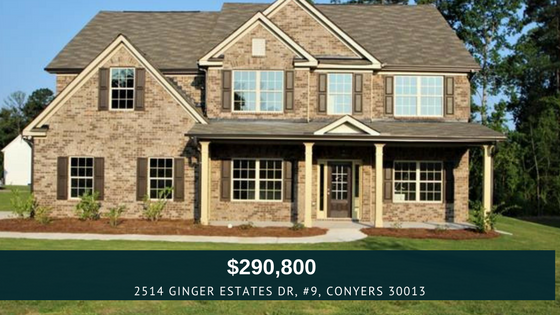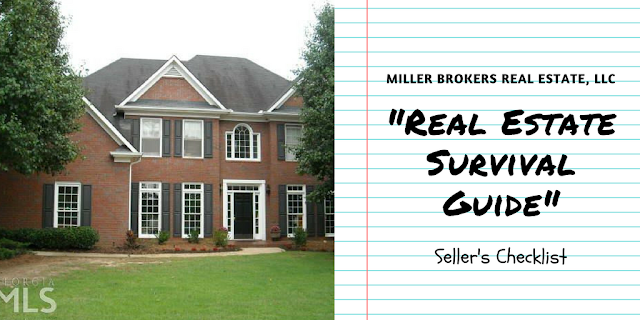The Most Important Factors for Investing in Real Estate
The Most Important Factors for Investing in Real Estate
1. Location of the Property
A mid-to-long-term view, about how the locality is expected to evolve over the investment period. Today’s peaceful open land at the back of a residential building may be developed into a noisy manufacturing facility in future, making the residential valuations less profitable. It is advisable to conduct thorough check about ownership, type and intended usage of neighboring areas, establishments and free land in the locality.
- Conyers is a peaceful place. Little to no criminal activity, and is generally quite pleasant. Conyers has been more than satisfactory, though if you're looking for a place to hang out at night with your friends. There are only a few places here that would fit this description. You would be better off going to Atlanta.
- Covington is known for its rich history and involvement in the exciting world of film and television. The city has had a leading role in several productions, earning it the nickname “The Hollywood of the South.” There's a lot of things "to do" in Covington, GA.
2. Valuation of the Property
Commonly used valuation methodologies include:
- Sales comparison approach: Recent comparable sales of properties with similar characteristics –most common and suitable for both new and old properties
- Cost Approach: All cost summation minus depreciation – suitable for new construction
- Income approach: Based on expected cash inflows — suitable for rentals
- Accurate property appraisal/valuation is, nowadays, of utmost importance and an essential service for the property owner and/or prospective buyer. It acts as an invaluable guide, protecting the property owner from making avoidable mistakes and ending up trapped. Certified and experienced valuers are thus more useful and necessary than ever before.
3. Investment Purpose and Investment Horizon
Identify which of the following broad categories suits your purpose and prepare yourself accordingly:
- Buy & Self-use: Savings on rentals, benefit of self-utilization and value appreciation
- Buy & Lease: Regular income and long-term value appreciation. Requires building a temperament of being a landlord — for handling possible disputes & legal issues, managing tenants, repair work, etc.
- Buy & Sell (Short-term): Quick, small to mediocre profit - usually buying under construction properties and selling slightly high once ready
- Buy & Sell (Long-term): Large intrinsic value appreciation over a long period; a solution for long-term aims like retirement planning, child’s education, etc.
- The treasury department of a large corporation generally measures its horizon in days. In most cases, the shorter people’s investment horizon is, the less risk they should be willing to accept.When deciding what type of investment you should have in your portfolio, it is important to determine what your investment horizon is. If you do not need our money for a long time, for example, decades, you can own a riskier mix of investments compared to a person who needs money within the next few weeks or months.
4. Expected Cash Flows & Profit Opportunities
Develop draft projections for the following modes of profit & expenses:
- Expected cash flow from rental income — Inflation favors landlords for rental income
- Expected increase in intrinsic value due to long-term price appreciation
- Benefits of depreciation (and available tax benefits)
- Cost-benefit analysis of renovation before sale to get better price
- Cost-benefit analysis of mortgaged loans vs. value appreciation
- A necessary task in analyzing an income producing property is determining the before tax cash flow. When you know the cash flow, you can figure your return on your investment, calculate the tax shelter, and evaluate the investment, in other ways.
5. Be Careful with Leverage - Know the Pitfalls
Depending upon your current and expected future earnings and paying capability, consider the following:
- Decide on the type of mortgage loan that best fits your situation (Fixed Rate, Adjustable Floating Rate, Interest Only or Zero Down Payment)
- Be aware of the terms and conditions and other charges levied by financiers
- Hunt around and bargain for a better deal using a tool like a mortgage calculator to find lower interest rates.
- Loans are convenient but may come at a big cost — you commit your future income, to get utility today for a cost of interest spread across many years. Understanding how to handle loans of this nature allows you to benefit from it to the maximum. While ignoring the risks can lead to major pitfalls.
6. Investment in New Construction vs. Existing Establishments
- Check past projects and the reputation of the construction company for new construction investments
- Review property deeds, recent survey, and appraisal report for old constructions
- Be aware of monthly maintenance costs, outstanding dues & taxes from past owners. These costs can severely impact your regular cash flows
- Investing in on-lease property (possessed by others) – Is it rent controlled, rent stabilized or free market? Is the lease about to expire? Does it have renewal options in favor of the tenant? Are interior items owned by the tenant or owner? etc. are some of the details to be aware of.
- Quality-check items (furniture, fixtures, and equipment), if included in sale
- New construction properties usually offer attractive pricing, the option of customization, clearly documented amenities and clear titles. The investor has to deal with only the construction company as a counterpart. Risks include a delay in possession, an increase in costs, no awareness about the neighborhood, etc.Those on resale have vice-versa factors and may need a more thorough check on ownership, documents, and legal matters.











Comments
Post a Comment